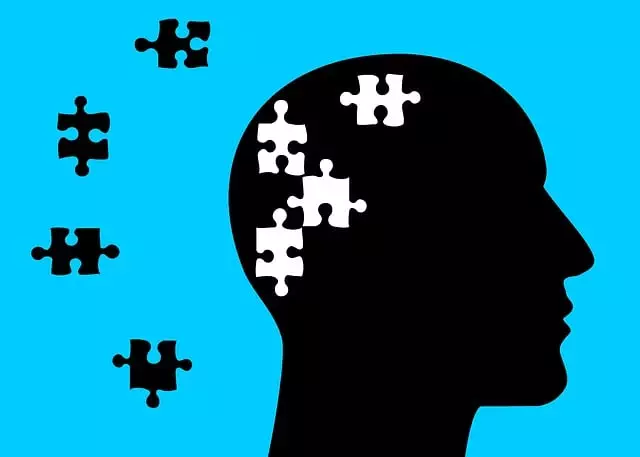The Kaiser Permanente mental health center in Highlands Ranch successfully engages its community through targeted outreach, addressing stress, anxiety, burnout, loneliness, and depression with tailored programs. Collaborative partnerships with local entities establish trust, as seen in mindfulness sessions fostering connection. Measuring program impact through attendance, feedback, and emotional well-being improvements ensures continuous improvement and highlights the center's crucial role in enhancing mental health support in Highlands Ranch.
Community outreach programs play a vital role in improving access to mental health services, especially in diverse communities like those around the Kaiser Permanente Mental Health Center in Highlands Ranch. This article explores how such initiatives can make a significant impact by understanding local needs, designing targeted strategies, and fostering community engagement. We delve into successful implementation at the Kaiser Permanente center, offering valuable insights for enhancing mental health support through tailored outreach.
- Understanding Community Needs: Identifying Target Audiences for Kaiser Permanente Mental Health Center in Highlands Ranch
- Designing Effective Outreach Strategies: Tailoring Programs to Address Local Mental Health Challenges
- Implementing and Promoting Community Engagement: Building Partnerships and Fostering Trust
- Measuring Impact and Continuous Improvement: Evaluating the Success of Outreach Initiatives at the Mental Health Center
Understanding Community Needs: Identifying Target Audiences for Kaiser Permanente Mental Health Center in Highlands Ranch

Understanding Community Needs is a critical step in implementing successful outreach programs at the Kaiser Permanente Mental Health Center in Highlands Ranch. The first task involves identifying the target audiences within the community who stand to benefit from mental health services and education. This may include young adults experiencing stress and anxiety, working professionals suffering from burnout, and older individuals dealing with loneliness or depression. By pinpointing these specific groups, the center can tailor its outreach initiatives to address their unique challenges.
For instance, engaging young adults might involve hosting interactive workshops on managing stress and promoting mental wellness through social media campaigns that focus on peer support. Professionals seeking burnout prevention strategies could benefit from educational seminars and networking events facilitating connections with mental health coaches. Similarly, developing Mental Wellness Coaching Programs can empower individuals to take control of their mental health while boosting confidence levels.
Designing Effective Outreach Strategies: Tailoring Programs to Address Local Mental Health Challenges

Designing effective outreach strategies is pivotal when implementing community programs aimed at addressing local mental health challenges. Tailoring initiatives to reflect the unique needs and cultural nuances of Highlands Ranch, for instance, where a Kaiser Permanente mental health center operates, can significantly enhance engagement and impact. This involves understanding the prevalent mental health concerns within the community, such as stress-related disorders or substance use issues, which may differ from urban centers.
By employing targeted Communication Strategies, these programs can offer tailored support. For example, incorporating Crisis Intervention Guidance into outreach efforts enables access to immediate assistance for those in distress. Equally important is fostering emotional regulation skills through interactive workshops and peer support groups, ensuring individuals have the tools to navigate mental health challenges effectively.
Implementing and Promoting Community Engagement: Building Partnerships and Fostering Trust

Implementing community outreach programs requires a strategic approach to engage and build trust within the local community, especially in areas like the Kaiser Permanente mental health center in Highlands Ranch. Partnerships are key; collaborating with existing community organizations, schools, and local businesses can help establish a strong foundation for your initiatives. By joining forces, these partnerships enable the sharing of resources, expertise, and networks, fostering a collaborative environment that enhances program effectiveness.
Promoting active community engagement involves more than just spreading awareness; it’s about building trust through genuine interactions. Implementing empathy-building strategies and conflict resolution techniques can help bridge any gaps between service providers and community members. For instance, hosting mindfulness meditation sessions or workshops can create safe spaces for individuals to connect, learn, and share experiences, thereby strengthening the bond between the mental health center and the community it serves.
Measuring Impact and Continuous Improvement: Evaluating the Success of Outreach Initiatives at the Mental Health Center

Measuring the impact of community outreach programs is a vital step in ensuring their long-term success and effectiveness, especially at Kaiser Permanente mental health centers like the one in Highlands Ranch. By evaluating the outcomes, the center can identify what strategies are making a positive difference in the lives of those they serve. This process involves collecting data on various indicators such as program attendance, participant feedback, and improvements in emotional well-being promotion techniques over time. For instance, analyzing the number of individuals who regularly attend mindfulness meditation sessions or workshops focused on coping skills development can offer valuable insights into the appeal and effectiveness of these initiatives.
Continuous improvement is fostered through this data-driven approach, allowing the center to adapt their outreach efforts accordingly. They may discover that certain programs resonate more with specific demographics, prompting them to tailor future events or resources to meet those needs. Moreover, measuring success goes beyond quantitative data; qualitative feedback from participants can highlight the personal impact of these initiatives, such as improved stress management or enhanced social connections, thereby enriching the overall community mental health support ecosystem in Highlands Ranch.
The successful implementation of community outreach programs at the Kaiser Permanente Mental Health Center in Highlands Ranch relies on a comprehensive approach that begins with understanding local needs, designing tailored strategies, and fostering strong community partnerships. By addressing specific mental health challenges through innovative programs, the center can build trust and engage residents effectively. Continuous evaluation and measurement of these initiatives ensure their long-term impact and enable the center to adapt and improve based on data-driven insights, ultimately enhancing mental well-being within the Highlands Ranch community.


